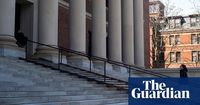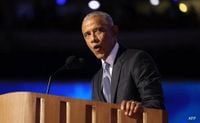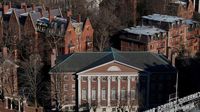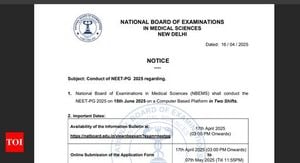Harvard University has taken a bold stand against the Trump administration, rejecting demands that it alter its policies in a way that critics say would undermine academic freedom. On April 14, 2025, the university's president, Alan Garber, announced that Harvard would not comply with a list of policy changes demanded by the administration, which included significant reforms to its hiring and admissions processes, as well as a discontinuation of its diversity, equity, and inclusion (DEI) programs.
In response to Harvard's defiance, the Trump administration swiftly announced it would freeze $2.2 billion in federal funding, a move that Harvard officials described as a politically motivated attack on the institution's autonomy. "No government – regardless of which party is in power – should dictate what private universities can teach, whom they can admit and hire, and which areas of study and inquiry they can pursue," Garber stated in a public letter to the Harvard community.
The administration's demands were outlined in a letter from a federal task force on combating antisemitism, which accused Harvard of failing to uphold civil rights laws. This task force claimed that federal investment in universities comes with the responsibility to ensure a safe environment for all students, particularly in light of rising antisemitism on campuses across the country.
Former President Barack Obama publicly supported Harvard's decision, stating that the university has "set an example for other higher-ed institutions" by rejecting what he termed an "unlawful and ham-handed attempt to stifle academic freedom." He expressed hope that other universities would follow suit, emphasizing the importance of maintaining an environment conducive to intellectual inquiry and rigorous debate.
The Trump administration has been targeting universities nationwide, threatening funding cuts unless they comply with a range of policy changes. In March 2025, the administration indicated it was reviewing $9 billion in federal contracts and grants to Harvard as part of a broader crackdown on perceived anti-Semitism and civil rights violations on college campuses. Other institutions, such as Columbia University, have already faced significant funding cuts, with Columbia losing $400 million due to allegations of allowing anti-Semitic harassment.
In the wake of the funding freeze, Harvard's faculty chapter of the American Association of University Professors filed a lawsuit against the Trump administration, seeking an immediate restraining order to prevent the cuts from taking effect. The lawsuit argues that the administration's actions violate the university's First Amendment rights and exceed the government's legal authority.
Garber's letter emphasized that the university would not compromise its independence or constitutional rights. He pointed out that the majority of the administration's demands represent direct governmental regulation of the intellectual conditions at Harvard, a stance that has drawn support from many in the academic community.
Critics of the administration's approach argue that the demands are a thinly veiled attempt to impose political ideology on educational institutions. Harvard's lawyers have outlined the steps the university has taken over the past 15 months to address antisemitism, including implementing disciplinary measures for policy violations and hiring staff to support these initiatives.
As the situation unfolds, the ramifications of the funding freeze and the ongoing conflict between Harvard and the Trump administration could have lasting impacts on the landscape of higher education in the United States. The university's refusal to comply with federal demands highlights a growing tension between academic institutions and government authorities.
In the broader context, this conflict comes amid heightened scrutiny of university policies in light of recent pro-Palestinian protests that have taken place across campuses. The Trump administration has accused activists of supporting Hamas, a designation that has further polarized discussions surrounding free speech and academic freedom.
With Harvard's endowment reported at $53.2 billion in 2024, the university may be better positioned than many others to withstand the financial impact of the funding cuts. However, the implications for students, faculty, and the institution's reputation remain significant as the legal battle unfolds.
As the Trump administration continues its efforts to reshape higher education policy, the outcome of Harvard's resistance may serve as a critical test case for other universities grappling with similar pressures. The university's commitment to protecting its academic integrity and independence may inspire other institutions to stand firm against governmental overreach.
In the coming weeks, the legal proceedings initiated by Harvard's faculty will likely draw national attention, as the university seeks to defend its rights and maintain its educational mission amidst external pressures. The unfolding drama at Harvard is not just a local issue; it reflects a national conversation about the role of government in education and the fundamental principles of academic freedom.








